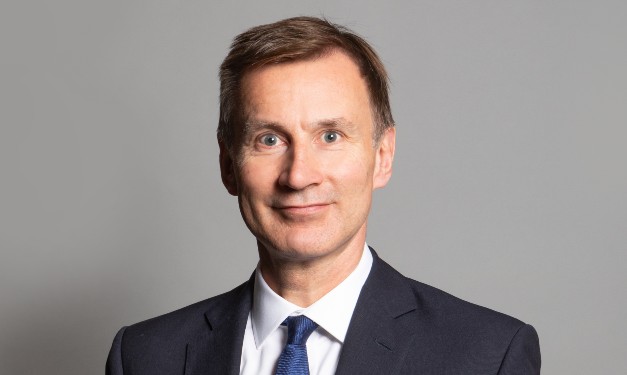The UK government has unveiled proposals to channel billions of pounds of pension contributions into unlisted companies in a bid to boost returns for savers and provide much needed capital for British start-ups.
Speaking yesterday, chancellor Jeremy Hunt said the performance of UK defined-contribution (DC) pension schemes is lagging international peers. In addition, they only invest 1 percent of their assets in unlisted equity, versus up to 6 percent in Australia.
‘Today I am pleased to announce that the Lord Mayor and I joined the CEOs of many of our largest DC pension schemes – namely Aviva, Scottish Widows, L&G, Aegon, Phoenix, Nest, Smart Pension, M&G & Mercer – for the formal signing of the Mansion House Compact,’ Hunt said.

‘The compact… commits these DC funds, which represent around two thirds of the UK’s entire DC workplace market, to the objective of allocating at least 5 percent of their default funds to unlisted equities by 2030. If the rest of the UK’s DC market follows suit, this could unlock up to £50 bn ($63 bn) of investment into high-growth companies by that time.’
The chancellor also announced several other proposals for the UK pensions industry, including support for the consolidation of DC pension funds and making it easier to wind up underperforming schemes.
‘For an average earner who starts saving at 18, these measures could increase the size of their pension pot by 12 percent over their career – that’s worth more than £1,000 more a year in retirement,’ said Hunt.
Speech response
The speech received a broadly warm welcome from many firms within the UK financial services industry, although some commentators highlighted potential issues, such as the voluntary nature of the agreement with pension scheme providers and the additional risk that would be taken on by savers.
‘The chancellor’s comments recognize that investment must be at the heart our economy – providing for the financial futures of UK households through pensions that deliver good returns, even in the most challenging economic times, and powering growth by investing in British businesses,’ says Chris Cummings, CEO of the Investment Association, in a statement.
He adds that delivering the desired outcomes will ‘require us to strike the right balance between risk and reward and between protection and innovation.’
Chris Smith, investment manager for UK equities at Jupiter Asset Management, takes a more cautious view of the proposals, saying in a statement that it is ‘unrealistic to expect the reforms announced to make a meaningful difference to growth or investment in the UK in the short term’, adding that many questions remain.
‘How are ‘UK growth assets’ defined?’ he asks. ‘What does a ‘voluntary expression of intent’ mean? What will be the liquidity, valuation, cost differences and implications to pension fund members being asked to invest in unlisted assets?
‘Is there enough in the way of high-quality, unlisted investment opportunities in the UK for an additional £75 bn of investment? What evidence suggests that unlisted assets will deliver higher, risk-adjusted, after-fee returns and therefore justifies a higher allocation in pension portfolios?’










